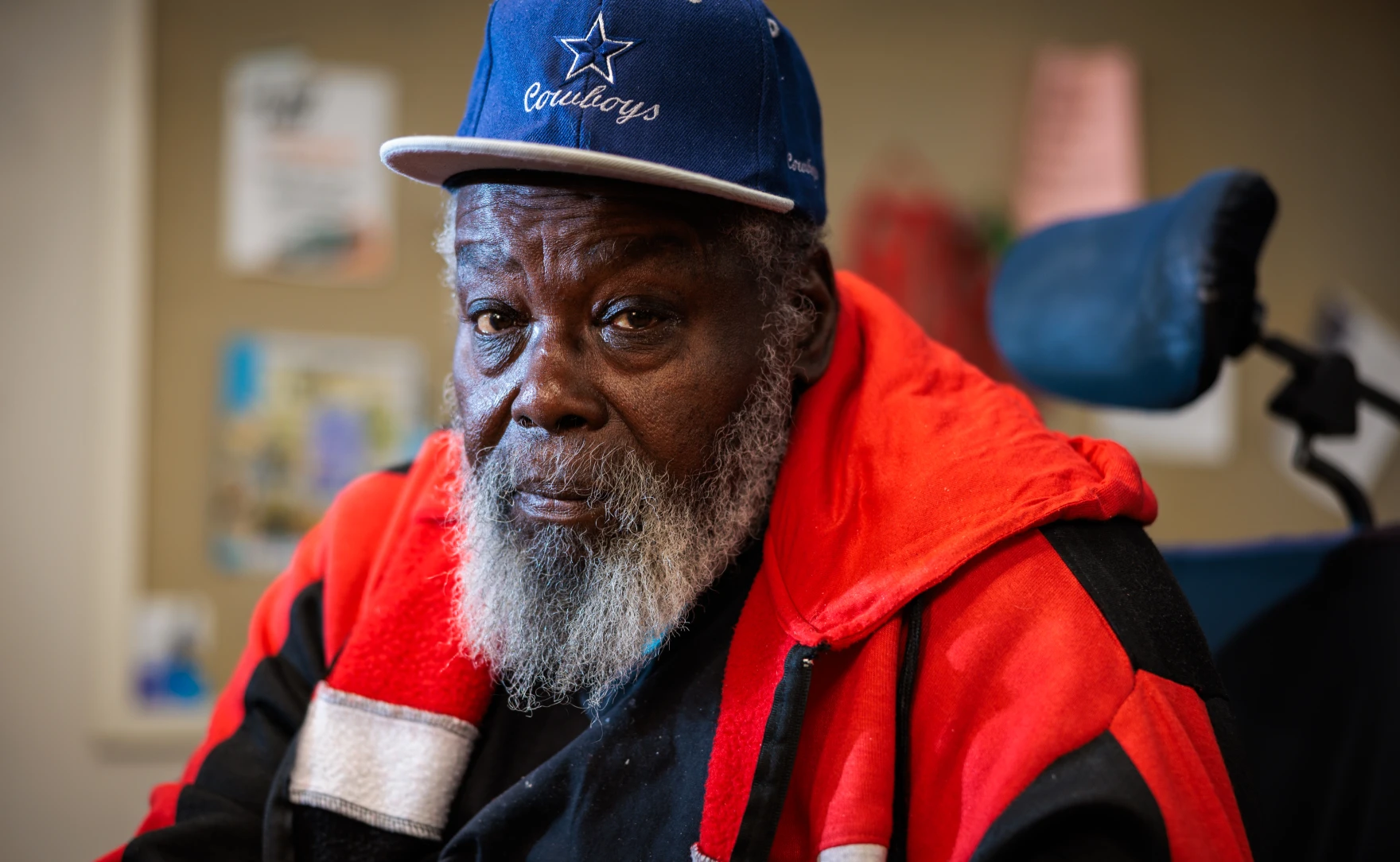Frank Woodson
By Adrienne Hoar McGibbon
Frank Woodson runs a food bank at his active adult community in Richmond.
Every Tuesday, some of his neighbors gather in a community room to take home donated food that’s been loaded into bags on top of a table. The bags are filled with bread, eggs, and other standard fare provided by local churches, charities, and other community members.
“It just makes me feel overjoyed that I can help somebody,” Woodson said.
He says some people are hesitant to ask for help despite their hunger. Woodson says one man’s reaction has stuck with him over the years.
“He got the plate to go, and when he came up, tears were rolling down his eyes because the man was hungry,” Woodson said. “It meant something to him.”
Throughout the week, neighbors knock on Woodson’s door, dropping off groceries for others. He often goes door to door filling a large cart with food with the help of Mary Njie, another community member.
Despite the generosity, Njie says the food bank doesn’t always meet the needs of those in the building: “Sometimes we fall short here, and some of us need a little extra help.”
While helping to feed others, both Woodson and Njie receive benefits through the Supplemental Nutrition Assistance Program — once known as food stamps — which help them cover the costs of their own groceries. They both live on fixed incomes from Social Security and say that after paying rent, they don’t have much money left over.
“It’s not a whole lot,” Njie said about her monthly SNAP benefits. “But it does help fill in the gaps.”
About 165,000 Virginia seniors don’t have enough to eat, according to the National Council on Aging. But only about 38% of adults 65 and older take advantage of available benefits.
Dustin Parks is the community benefits outreach coordinator for Feed More, a Richmond-based charity that works to combat food insecurity. He attends the Tuesday food pantry gatherings to sign up as many people as possible for programs like SNAP.
Parks says some seniors are hesitant to sign up because of negative associations they have with the program or concerns about a lengthy application process.
“It doesn’t have to be scary or challenging,” he said. “It’s not a race… We can just work through it step by step.”
Many seniors only qualify for Virginia’s minimum benefit amount of $23 per month.
“When it comes to the time for renewal, they’ll just say it’s not worth the time and the effort to get a minimum benefit of $23,” Parks said. “I’ll see people who won’t renew or reenlist in SNAP just based on the amount that they receive.”
About 32,000 Virginia seniors get that minimum benefit amount, according to the Federation of Virginia Food Banks. Eddie Oliver, the organization’s executive director, called senior hunger a “hidden crisis in the commonwealth,” which he says has only gotten worse with inflation and higher grocery prices.
Oliver said Virginia’s food banks saw a sharp increase in needs after pandemic-related SNAP benefit increases from the federal government expired in February 2023.
“We immediately saw longer pantry lines — 10–20% more people coming for emergency food assistance at our 1,100 pantries throughout Virginia,” he said.
The state’s older adults are particularly susceptible to food insecurity because many are on fixed incomes and also covering medical expenses.
“They’re fixed with what they’ve got, and so they often end up cutting back, sacrificing on meals — and that really harms their health,” Oliver added.
Advocacy groups and state lawmakers are working to strengthen SNAP benefits for older Virginians. State Sen. Ghazala Hashmi (D–Chesterfield) is sponsoring a budget amendment to increase the minimum allotted SNAP benefits to $50 a month for recipients 60 and older, which would add about $20 million per year to the budget.
She unsuccessfully proposed a similar increase during this year’s General Assembly session, but hopes her amendment will be successful this time around.
“We have always historically been at the lower end of the number of states that provide these benefits for seniors,” Hashmi said. “I think there is a need for public will and certainly for political action to ensure that we continue to provide nutritious options for our aging population.”
Senior hunger a ‘hidden crisis in the commonwealth’



